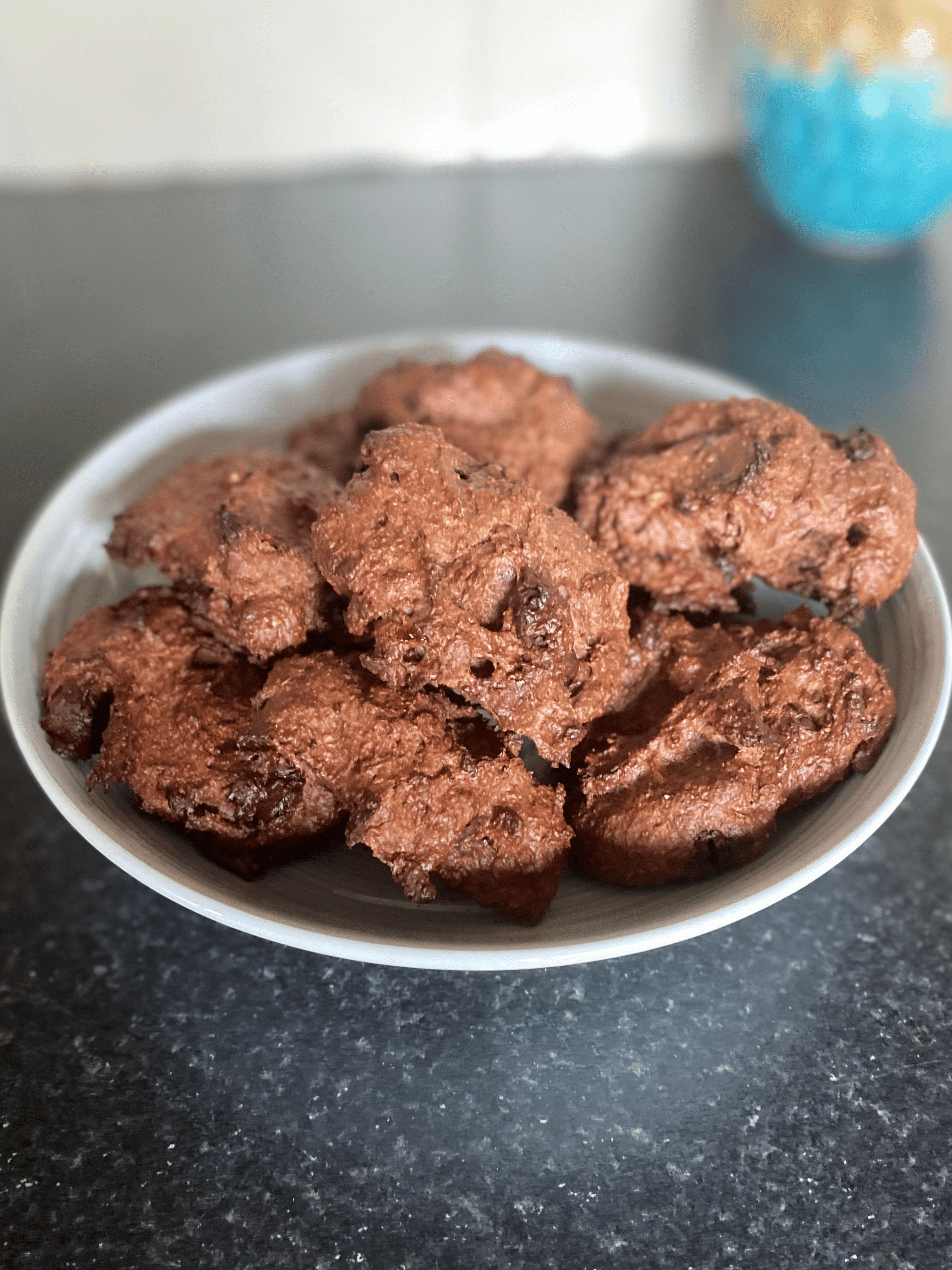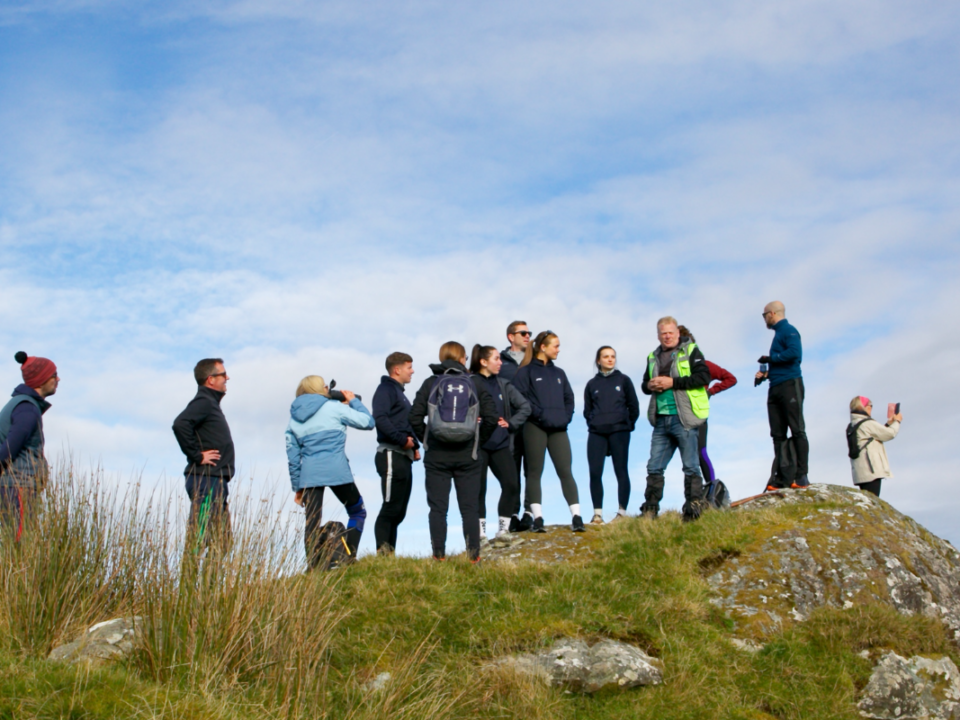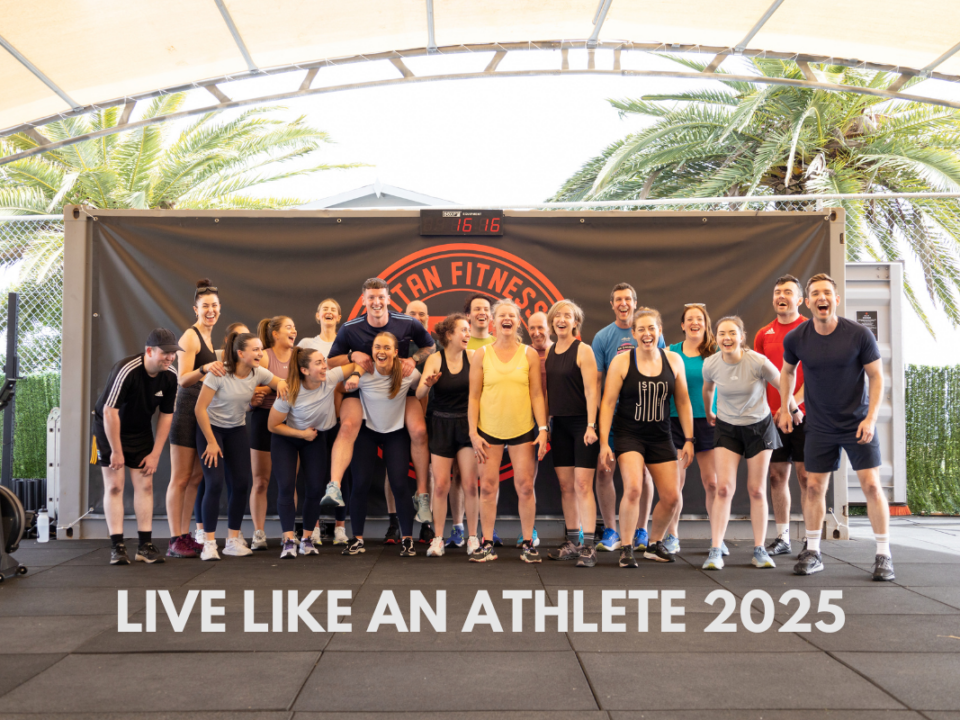
Leading Yourself So You Can Lead Others
February 12, 2025
Chocolate Cookies
February 20, 2025
Leading Yourself So You Can Lead Others
February 12, 2025
Chocolate Cookies
February 20, 2025Recovery: The Foundation of Athletic Success
Recovery is a critical yet often misunderstood component of athletic performance. While many athletes focus on training volume and intensity, the benefits of recovery are frequently underutilised or misdirected. Recovery not only enables athletes to train at a greater level but also facilitates better adaptation, reduces the risk of injury, and minimizes susceptibility to illness. By prioritising recovery, athletes can achieve sustainable progress and long-term success, body and mind!

Why Recovery Matters
Effective recovery allows the body to repair muscle tissues, replenish glycogen stores, and reset both mentally and physically. The following benefits highlight its importance:
-
- Enhanced Adaptation: Recovery periods enable the body to adapt to training loads, improving strength, endurance, and overall performance.
- Injury Prevention: Consistent recovery practices mitigate the risk of overtraining and associated injuries by allowing adequate time for tissue repair.
- Illness Reduction: By reducing stress and supporting immune function, recovery helps athletes stay healthy and consistent in their training.
- Psychological Readiness: Positive self-talk can lead to better performance outcomes. Research suggests that spending time in nature and practicing mindfulness can aid in minimising mental fatigue.
Without sufficient recovery, even the best training plans can lead to stagnation, burnout, or regression. Daily reflection on goals and performance can help athletes to sustain a good psychological state and overcome aspects of physical and mental fatigue.
Investing in Recovery: Evidence-Based Practices
Scientific evidence emphasizes that recovery is not a one-size-fits-all approach. Below is a summary of recovery strategies and their effectiveness, ranked based on their scientific impact:

The Fundamentals First: Sleep and Nutrition
Sleep: The Recovery Powerhouse
Sleep accounts for the highest percentage of recovery effectiveness. During sleep, growth hormone is released, muscle tissues are repaired, and mental processes are reset. For athletes, prioritizing 7-9 hours of quality sleep per night can drastically improve performance. Strategies include:
- Establishing a consistent sleep schedule.
- Creating a dark, cool, and quiet sleep environment.
- Incorporating breathwork or deep breathing exercises, as demonstrated by Lisa, a client who improved her restorative sleep markers by 6% through consistent breath-focused practices.
Nutrition: The Building Blocks of Recovery
Nutrition plays a pivotal role in replenishing energy stores and repairing muscles. Key practices include:
- Consuming adequate protein (1.6-2.2 g/kg body weight daily).
- Refueling with carbohydrates post-exercise (1-1.5 g/kg within 30 minutes).
- Including heart-healthy fats to support recovery and overall health.
Elite Gaelic football and rugby athletes often incorporate recovery smoothies with added cherries, pineapple, and berries for their anti-inflammatory and antioxidant properties, which aid muscle recovery and reduce soreness. Try out our recovery smoothie recipes linked below:
Additional Recovery Tools
- Stretching and Mobility Work: Stretching helps maintain flexibility and reduce muscle tightness. Though not as impactful as sleep or nutrition, it supports overall movement quality. Light bike sessions and yoga are also valuable for maintaining mobility and aiding recovery.
- Cold Water Immersion: Popular among athletes, cold water immersion can reduce inflammation and muscle soreness, but its effectiveness varies by individual and timing. Sea swims, often preferred by Gaelic football and rugby players, combine the benefits of cold water immersion with mental relaxation.
- Mindfulness and Relaxation Techniques: Activities such as meditation, yoga, and journaling support mental recovery and stress reduction, enhancing overall performance.
- Massage and Compression Garments: These methods offer short-term relief from soreness and improve circulation, making them beneficial complements to fundamental recovery practices. Compression garments are frequently used in Gaelic football and rugby as part of post-training routines.
- Supplements: While supplements like magnesium or tart cherry juice can aid sleep and recovery, they should complement, not replace, foundational habits.

Creating a Meaningful Recovery Process
In my experience as a performance nutritionist, athletes often overemphasize less impactful tools while neglecting the fundamentals. For example, many seek quick fixes like supplements or tea while underestimating the broader impact of a structured approach. Developing a recovery plan involves:
- Starting with High-Impact Areas: Focus on sleep and nutrition first, as these yield the greatest benefits.
- Incorporating Feel-Good Practices: Add activities like sea swims, music, or massage that enhance mental well-being.
- Adopting Reflective Practices: Regularly assess and adjust recovery strategies based on performance and feedback.
Lisa’s Case Study: A Holistic Approach
Lisa, a competitive athlete, initially struggled with inconsistent recovery. While she tried various techniques, the real progress came when she committed to optimising her sleep environment and practicing nightly breathwork. Within weeks, her restorative sleep markers improved by 6%, and she reported feeling more energized and focused. This highlights the importance of prioritizing evidence-based fundamentals and layering additional tools over time.
Conclusion
Recovery is an essential pillar of athletic performance that enables sustained training, adaptation, and resilience. Best outcomes in recovery come from a combination of 3 things; evidence, personal preference and individualisation. In order to achieve optimal recovery results athletes need to find and adapt to an approach that suits their needs, and that they can sustain. Investing time and effort into the practices that yield bigger results can help athletes to manage their recovery efficiently alongside a busy schedule. By focusing on high-impact areas like sleep and nutrition before incorporating supplementary strategies, athletes can develop a clear, meaningful recovery process. A structured approach, tailored to individual needs and supported by reflective practices, offers the best pathway to success.
Recovery is an essential pillar of athletic performance that enables sustained training, adaptation, and resilience. Best outcomes in recovery come from a combination of three things: evidence, personal preference, and individualisation. To achieve optimal recovery results, athletes need to find and adapt an approach that suits their needs and that they can sustain. Investing time and effort into the practices that yield bigger results can help athletes manage their recovery efficiently alongside a busy schedule. By focusing on high-impact areas like sleep and nutrition before incorporating supplementary strategies, athletes can develop a clear, meaningful recovery process. A structured approach, tailored to individual needs and supported by reflective practices, offers the best pathway to success.
That said, recovery can sometimes feel overwhelming, and navigating the best strategies for your unique needs isn’t always straightforward. If you’re struggling to find the right balance or need support in optimising your recovery, don’t hesitate to reach out to expertsupport@daveynutrition.com and learn more about our consultations here
Recovery: The Foundation of Athletic Success
Recovery is a critical yet often misunderstood component of athletic performance. While many athletes focus on training volume and intensity, the benefits of recovery are frequently underutilised or misdirected. Recovery not only enables athletes to train at a greater level but also facilitates better adaptation, reduces the risk of injury, and minimizes susceptibility to illness. By prioritising recovery, athletes can achieve sustainable progress and long-term success, body and mind!

Why Recovery Matters
Effective recovery allows the body to repair muscle tissues, replenish glycogen stores, and reset both mentally and physically. The following benefits highlight its importance:
-
- Enhanced Adaptation: Recovery periods enable the body to adapt to training loads, improving strength, endurance, and overall performance.
- Injury Prevention: Consistent recovery practices mitigate the risk of overtraining and associated injuries by allowing adequate time for tissue repair.
- Illness Reduction: By reducing stress and supporting immune function, recovery helps athletes stay healthy and consistent in their training.
- Psychological Readiness: Positive self-talk can lead to better performance outcomes. Research suggests that spending time in nature and practicing mindfulness can aid in minimising mental fatigue.
Without sufficient recovery, even the best training plans can lead to stagnation, burnout, or regression. Daily reflection on goals and performance can help athletes to sustain a good psychological state and overcome aspects of physical and mental fatigue.
Investing in Recovery: Evidence-Based Practices
Scientific evidence emphasizes that recovery is not a one-size-fits-all approach. Below is a summary of recovery strategies and their effectiveness, ranked based on their scientific impact:

The Fundamentals First: Sleep and Nutrition
Sleep: The Recovery Powerhouse
Sleep accounts for the highest percentage of recovery effectiveness. During sleep, growth hormone is released, muscle tissues are repaired, and mental processes are reset. For athletes, prioritizing 7-9 hours of quality sleep per night can drastically improve performance. Strategies include:
- Establishing a consistent sleep schedule.
- Creating a dark, cool, and quiet sleep environment.
- Incorporating breathwork or deep breathing exercises, as demonstrated by Lisa, a client who improved her restorative sleep markers by 6% through consistent breath-focused practices.
Nutrition: The Building Blocks of Recovery
Nutrition plays a pivotal role in replenishing energy stores and repairing muscles. Key practices include:
- Consuming adequate protein (1.6-2.2 g/kg body weight daily).
- Refueling with carbohydrates post-exercise (1-1.5 g/kg within 30 minutes).
- Including heart-healthy fats to support recovery and overall health.
Elite Gaelic football and rugby athletes often incorporate recovery smoothies with added cherries, pineapple, and berries for their anti-inflammatory and antioxidant properties, which aid muscle recovery and reduce soreness. Try out our recovery smoothie recipes linked below:
Additional Recovery Tools
- Stretching and Mobility Work: Stretching helps maintain flexibility and reduce muscle tightness. Though not as impactful as sleep or nutrition, it supports overall movement quality. Light bike sessions and yoga are also valuable for maintaining mobility and aiding recovery.
- Cold Water Immersion: Popular among athletes, cold water immersion can reduce inflammation and muscle soreness, but its effectiveness varies by individual and timing. Sea swims, often preferred by Gaelic football and rugby players, combine the benefits of cold water immersion with mental relaxation.
- Mindfulness and Relaxation Techniques: Activities such as meditation, yoga, and journaling support mental recovery and stress reduction, enhancing overall performance.
- Massage and Compression Garments: These methods offer short-term relief from soreness and improve circulation, making them beneficial complements to fundamental recovery practices. Compression garments are frequently used in Gaelic football and rugby as part of post-training routines.
- Supplements: While supplements like magnesium or tart cherry juice can aid sleep and recovery, they should complement, not replace, foundational habits.

Creating a Meaningful Recovery Process
In my experience as a performance nutritionist, athletes often overemphasize less impactful tools while neglecting the fundamentals. For example, many seek quick fixes like supplements or tea while underestimating the broader impact of a structured approach. Developing a recovery plan involves:
- Starting with High-Impact Areas: Focus on sleep and nutrition first, as these yield the greatest benefits.
- Incorporating Feel-Good Practices: Add activities like sea swims, music, or massage that enhance mental well-being.
- Adopting Reflective Practices: Regularly assess and adjust recovery strategies based on performance and feedback.
Lisa’s Case Study: A Holistic Approach
Lisa, a competitive athlete, initially struggled with inconsistent recovery. While she tried various techniques, the real progress came when she committed to optimising her sleep environment and practicing nightly breathwork. Within weeks, her restorative sleep markers improved by 6%, and she reported feeling more energized and focused. This highlights the importance of prioritizing evidence-based fundamentals and layering additional tools over time.
Conclusion
Recovery is an essential pillar of athletic performance that enables sustained training, adaptation, and resilience. Best outcomes in recovery come from a combination of 3 things; evidence, personal preference and individualisation. In order to achieve optimal recovery results athletes need to find and adapt to an approach that suits their needs, and that they can sustain. Investing time and effort into the practices that yield bigger results can help athletes to manage their recovery efficiently alongside a busy schedule. By focusing on high-impact areas like sleep and nutrition before incorporating supplementary strategies, athletes can develop a clear, meaningful recovery process. A structured approach, tailored to individual needs and supported by reflective practices, offers the best pathway to success.
Recovery is an essential pillar of athletic performance that enables sustained training, adaptation, and resilience. Best outcomes in recovery come from a combination of three things: evidence, personal preference, and individualisation. To achieve optimal recovery results, athletes need to find and adapt an approach that suits their needs and that they can sustain. Investing time and effort into the practices that yield bigger results can help athletes manage their recovery efficiently alongside a busy schedule. By focusing on high-impact areas like sleep and nutrition before incorporating supplementary strategies, athletes can develop a clear, meaningful recovery process. A structured approach, tailored to individual needs and supported by reflective practices, offers the best pathway to success.
That said, recovery can sometimes feel overwhelming, and navigating the best strategies for your unique needs isn’t always straightforward. If you’re struggling to find the right balance or need support in optimising your recovery, don’t hesitate to reach out to expertsupport@daveynutrition.com and learn more about our consultations here
Upgrade NOW
Upgrade NOW










